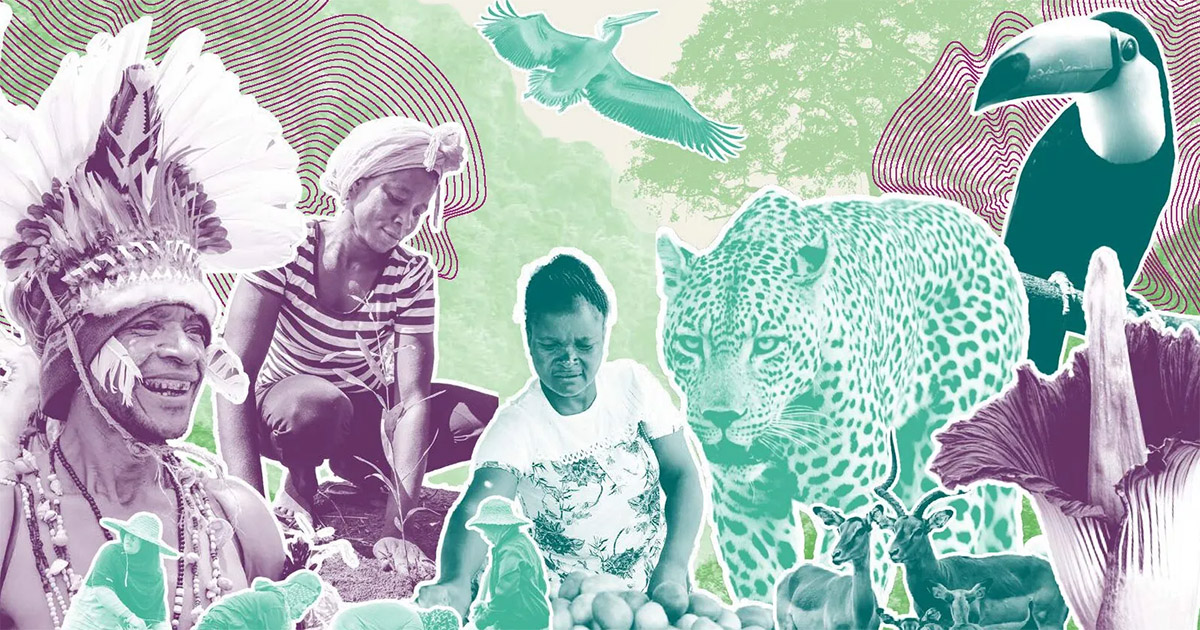Reference number: 2489
Job status: In-progress
Job category: Consultancy
Duty station: COlombo, Sri Lanka
Download PDF:
CIFOR-ICRAF
The Center for International Forestry Research (CIFOR) and World Agroforestry (ICRAF) envision a more equitable world where trees in all landscapes, from drylands to the humid tropics, enhance the environment and well-being for all. CIFOR and ICRAF are non-profit science institutions that build and apply evidence to today’s most pressing challenges, including energy insecurity and the climate and biodiversity crises. Over a combined total of 65 years, we have built vast knowledge on forests and trees outside of forests in agricultural landscapes (agroforestry). Using a multidisciplinary approach, we seek to improve lives and to protect and restore ecosystems. Our work focuses on innovative research, partnering for impact, and engaging with stakeholders on policies and practices to benefit people and the planet. Founded in 1993 and 1978, CIFOR and ICRAF are members of CGIAR, a global research partnership for a food secure future dedicated to reducing poverty, enhancing food and nutrition security, and improving natural resources.
Consultants to identify suitable interventional options for the seven key activities in Component 1 of the GCF Knuckles Project under the SLM framework and build up guidelines for their applications and monitoring
Overview
Ministry of Agriculture, Livestock, Lands and Irrigation Sri Lanka (MOI), along with ICRAF, is implementing a project titled “Strengthening Climate Resilience for Subsistence Farmers and Agricultural Plantation Communities Residing in the Vulnerable River Basins, Watershed Areas and Downstream of the Knuckles Mountain Range Catchment of Sri Lanka” in the Knuckles region of Sri Lanka with the funds received from the Green Climate Fund (GCF Knuckles project) and co-financed by the Government of Sri Lanka. The project aims to build sustainable land management with improved ecosystem services in uplands and enhanced economic and livelihood options for the affected communities that will ultimately improve the adaptive capacity to the expected climate change.
A basic guide will be provided for consultants to identify the criteria to be considered in each SAoI in proposing evidence-based suitable intervention options and generic application models at the beginning of the contract. Also, consultants are facilitated with logistics for field visits, focus group discussions and developing extension materials, as required.
In developing sustainable land management practices with improved primary production in the project area, six key activities are intended in the project document. Considering the subject specialty, seven Specific Areas of Intervention (SAoI) have been identified as follows.
1. Streamside protection 2. Drainage management along the roads 3. Rehabilitation and establishment of village tanks, ponds and irrigation networks 4. Restoration of forest mosaic landscapes 5. Increasing cropping intensity of irrigated rice 6. Sustainable intensification of smallholder production 7. Restoration and sustainable intensification of plantationsEach SAoI has different contextual situations on the ground; therefore, suitable intervention options are to be identified for each situation to address the project needs. Detailed guidelines are required for each potential option to facilitate field-level application of options and measure impact. In categorizing the ground situations for each SAoI, information available at relevant governing/stakeholder institutions and maps developed under the SLM framework should be considered, and also, the guidelines developed by consultants are to be refined/co-designed at the community level to facilitate the implementation process. Further, a monitoring system is also to be set up to assure their sustainability.
Consultants are expected to be internationally recognized experts in the field of relevant SAoI with practical experience. They should possess reasonable understanding on the ground situation of the project area and the capability of dealing with relevant stakeholders.
Duties and responsibilities
Under
this consultancy, consultants are required to understand the criteria to be
considered in identifying suitable intervention options under Component 1 of
the GCF Knuckles Project, by following the project document, spatial maps
developed under the SLM Framework and by discussing with key project management
staff and then,
- Identify
the important elements in the contextual framework of which particular SAoI
exists at ground level, and categorize them as appropriate to develop detailed
intervention options,
- Review
the potential intervention options in local and global settings in comparison
to the those proposed by the governing institutes and propose evidence-based
suitable intervention options and generic application models (need to be
supported by literature) for each contextual category,
- Co-design
the area-specific models for intervention options with stakeholders aligning with the project
needs and monitoring plan/s,
- Develop
a user-friendly manual for intervention options and monitoring guide for the
relevant SAoI with costing details, and
- Contribute
to initial capacity development of project staff.
Education, knowledge and experience
Reporting requirements
Electronic version of a report on criteria to be considered in identifying suitable intervention options as per the project document and the engagement plan, with methods, (e.g. FGDs), data and the co-designing process - by the end of 2nd week
Electronic version of a report on the important elements in the contextual framework of which particular SAoI exists at ground level with generic categorization in view of developing appropriate intervention options - by the end of 6th week
Electronic version of a report on the proposed evidence-based suitable intervention options and generic application models (with references), monitoring criteria for each relevant contextual category and the detailed co-designing plan with stakeholders - by the end of 8th week
Draft report (electronic version) on co-designed area-specific models suitable for intervention options and monitoring plan for review together with a presentation to the review panel - by the end of 12th week
Final report (electronic copy plus three hard copies) on co-designed area-specific models suitable for intervention options and monitoring plan after revising draft report considering the comments provided by project staff – (two week after receiving the comments from project staff) - by the end of 15th week
By the end of 19th week - Draft user-friendly manual (electronic version plus one hard copy) based on the report above for intervention options at ground level under the relevant SAoI
Final user-friendly manual (electronic version plus three hard copies) for intervention options for the relevant SAoI after revising draft manual considering the comments provided by review panel– (two week after receiving the comments from project staff) - by at the end of 24th week
From 24th to 28th week – PowerPoint presentations at a series of interactive workshops for capacity development of the implementing partners with an introduction to the manual on intervention options (Slide deck and other extension aids are to be provided, as required)
Terms and conditions
• By the end of 2nd week - Report on criteria to be considered in identifying suitable intervention options as per the project document and the engagement plan, with methods, (e.g. FGDs), data and the co-designing process
• By the end of 6th week - Report on the important elements in the contextual framework of which particular SAoI exists at ground level with generic categorization in view of developing appropriate intervention options
• By the end of 8th week - Report on the proposed evidence-based suitable intervention options and generic application models (with references), monitoring criteria for each relevant contextual category and the detailed co-designing plan with stakeholders
• By the end of 12th week - Draft report on co-designed area-specific models suitable for intervention options and monitoring plan for review together with a presentation to the review panel
• By the end of 15th week - Final report on co-designed area-specific models suitable for intervention options and monitoring plan after revising draft report considering the comments provided by project staff – (two week after receiving the comments from project staff)
• By the end of 19th week - Draft user-friendly manual based on the report above on intervention options for the relevant SAoI
• By at the end of 24th week - Final user-friendly manual for intervention options for the relevant SAoI after revising draft manual considering the comments provided by review panel– (two week after receiving the comments from project staff)
• From 24th to 28th week - Presentations at a series of interactive workshops for capacity development of the implementing partners with an introduction to the manual on intervention options
Application process
The application deadline is 30 May 2025
We will acknowledge all applications, but will contact only short-listed candidates.



















